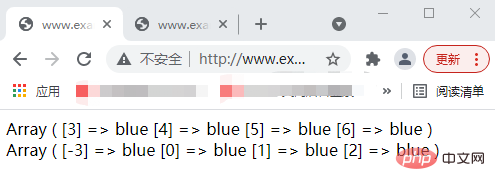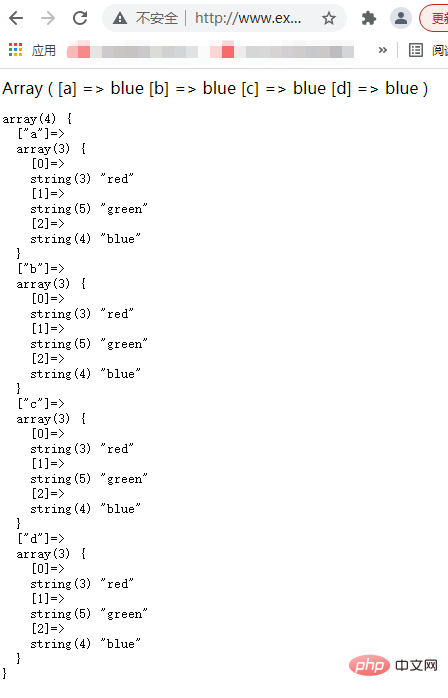
In the previous article "Take you to quickly master the replacement of array elements in PHP (detailed examples)", we introduced the relevant knowledge of how to replace array elements in PHP in detail. Let's take a look at this article. Let’s take a look at the relevant knowledge about filling arrays in PHP array operations. I hope it will be helpful to everyone!

In the previous article, we learned that if you want to replace elements in an array, you can use thearray_splicefunction,array_replacefunction andarray_replace_recursivefunction to achieve. Next, let's take a look at how to implement the filling operation of arrays in PHP.
In PHP, if you want to fill an array, you can use thearray_fillfunction and thearray_fill_keysfunction. Let’s take a look at these two functions separately. How to use.
array_fillFunction - key value fill array
In In PHP, you can fill an array with key values through thearray_fillfunction. The basic syntax format of thearray_fillfunction is as follows:
array_fill(index,number,value);
What you need to pay attention to is: these three Both parameters are required. Parameterindexrepresents the first index in the returned array. Parameternumberrepresents the number of elements to be inserted. Parametervaluerepresents the value used for filling.
If the parameterindexis a positive number, the index in the returned array will start from the parameter index; if the parameterindexis a negative number, then the index in the returned array will be returned Only the index of the first element in the array is the parameterindex, the second is0, the third is1and so on.
There are a total of parameternumberelements in the returned array, and the filled value isvalue, if the parameternumberis0# If ## or less than0, the function will be wrong. The function runs successfully and the returned result is the filled array.
array_fillfunction through an example. The example is as follows:

indexis negative. The example is as follows:
'; $a2=array_fill(-3,4,"blue"); print_r($a2); ?>

indexare different, that is, the change in the index.
array_fill_keysFunction - Fill array with keys and values
array_fill_keysfunction to fill the array with keys and values. The basic syntax format of thearray_fill_keysfunction is as follows:
array_fill_keys(keys,value);
keysmeans using the array value of this parameter as the key of the new array. If the value in parameterkeysis not standardized, it will be converted. It is a string, and the parametervaluerepresents the value used to fill the array. The result returned is a filled array.
array_fill_keysfunction through an example. The example is as follows:

'; $value=array('red','green','blue'); $a2=array_fill_keys($keys,$value); echo ""; var_dump($a2); ?>
Copy after login

PHP Video Tutorial" to learn more about PHP knowledge.
The above is the detailed content of How to fill arrays in different ways in PHP?. For more information, please follow other related articles on the PHP Chinese website!




